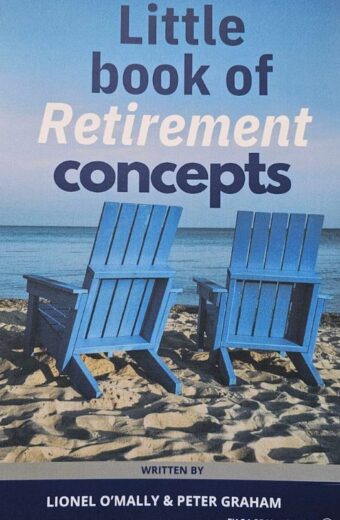The loss of something or someone close to us whether it be a wife, husband, partner, sibling, child, friend or even a pet can have a devastating effect on us. No amount of resilience or life experience can prepare us for the loss of a child or spouse. In modern Australia with advancements in medical science, pharmacological drugs and technology most of us will only be touched by death through accidents in our early years. Most of us will experience our first loss through the death of our grand parents followed by our parents and then a spouse. Those who have siblings may also experience the loss of a brother or sister. Therefore our experience of death in relation to family is very limited compared to other less advanced countries. Obviously the few Australians who have experienced war in its many forms would be far more familiar with death however this is only a small minority (fortunately) of Australians. We have been and are still the lucky country.
Our own death and that of our spouse is likely to be very different compared to that of our parents who were possibly more familiar with death. Unfortunately for our parents and grand parents just about every family in Australia was touched by loss more than once as a result of conflicts of all types in the first half of the 20th century. A time in our history that strangely gets referred to as “the good old days”. Many baby boomers would have only vague memories of their grand parents who more than likely died when they were still relatively young and not really able to understand the concept of death. However, today many baby boomers will live to see their grand-children reach adult hood, which means their passing will have a far more lasting impact on more people. Although unfortunately because we live in a very transient society many baby boomers will have children who do not live in the same city, state or even country than them. This in effect means death is possibly lonelier than it has ever been particularly if you are the surviving partner of a marriage. Unlike our parents and particularly grand parents who most likely died in their homes or in familiar surroundings many baby boomers will die in clinical conditions in a hospital or hospice.
This may sound very gloomy but it is a reality check. Have you planned for your death and those who you will leave behind? Have you discussed with those closest to you how you wish to die? You do not have to die in an isolated clinical setting in a hospital. You can ensure through planning you are at home if death is imminent. If you are married make sure your partner knows what your wishes are, like it or not we are all mortal and will die. The more you discuss your death and how, if possible, you wish to die and be remembered the more likely it is you will leave this earth with the comforting knowledge you actually had a part in your death beyond simply expiring. It is important that we all have as much control over our death as possible. Admittedly we may have little say in regard the timing of when death comes a calling. But statistically it is more likely than not that there will be medical intervention so you are going to have some awareness. Again the more you plan not only will you importantly have some control and say but those who you leave behind will be comforted to know “it was done your way”.
Philip Armstrong
CEO Australian Counselling Association

